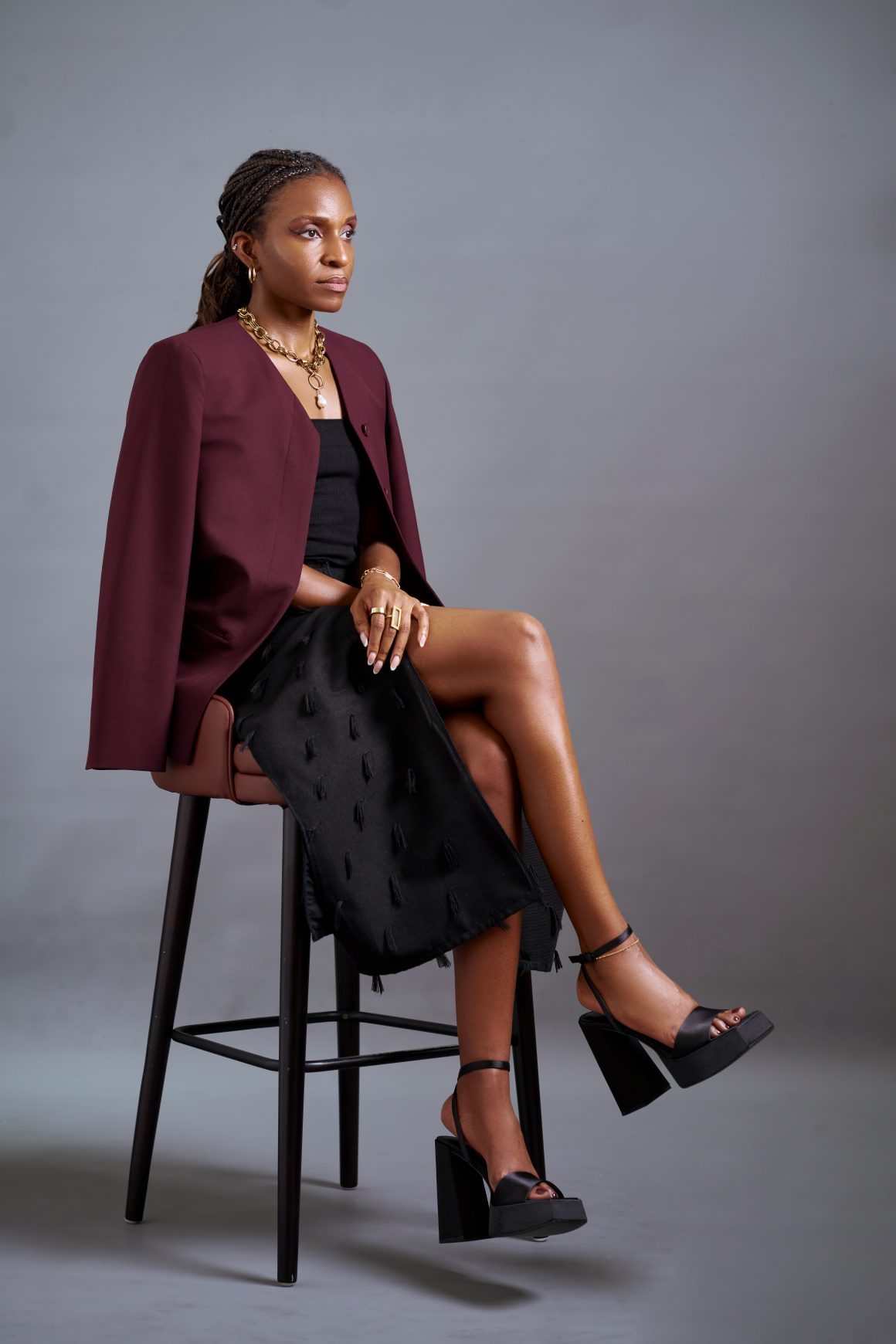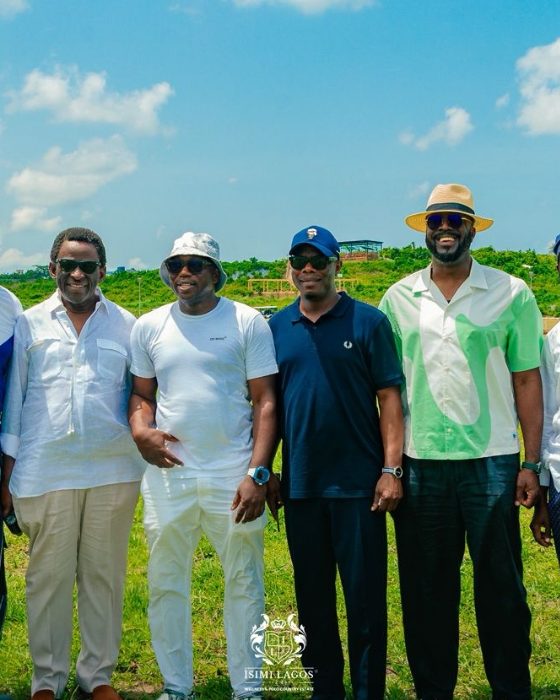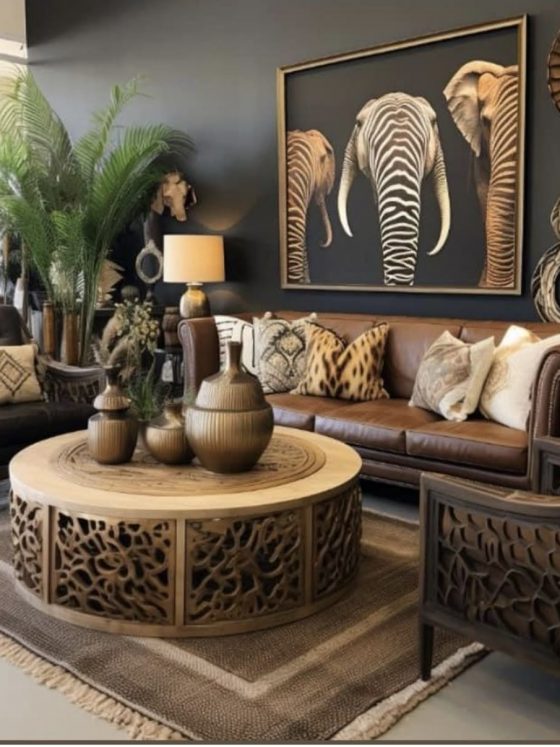I’m excited to introduce a new column, aptly titled The Big W, a
monthly column for everything to do with women, but mostly conversations about women in leadership with a spotlight on topical conversations, key issues and inspiring features. By the way, the W stands for women!
First, a bit about me! My name is Mena Imasekha; I’m a business development and operations manager at GAIA AFRICA, a private members business club serving the top 5% of women-decision makers in Africa, where I handle corporate strategy, partnerships and business development. Outside of my daily work of connecting women leaders at executive levels from various industries, I’m also a wellness enthusiast who loves to work out, travel, dress up, grow flowers, internet scroll and read avidly.
So, why “The Big W”? My goal is to provide a platform that discusses
pertinent issues relating to women, particularly women in leadership, across board and from all angles by delving into topical conversations, addressing key issues, and featuring inspiring stories. I believe these stories are important to the modern-day woman (and man) to inform, drive conversation, and hopefully inspire one or two people to consider things differently.
Each month, I hope to bring you conversations that matter, from engaging conversations with women leaders to addressing the most pressing issues affecting women today. This is a conversational style opinion column backed by research and/or leading expert opinion. Topics covered include career, purpose, finance, wellness, leadership, relationships, diversity, art, culture and innovation, usually through the lens of the women/women in leadership. These discussions, and all of them on some level, are aimed at highlighting current trends and the achievements of women leaders, exploring the challenges they and other women face, the innovative solutions they bring to the table, and everything happening in between.
So, stay tuned, whether you’re a leader, an aspiring one, or simply looking for motivation,
“The Big W” has something valuable for you. To follow the Big W,
follow @mena_imasekha and @thisdaystyle on Instagram. You can also follow on Substack – https://h3rjournal.substack.com
WHERE ARE THE WOMEN?
I had a small, polite chat with a gentleman during lunch last month at a quiet, charming restaurant on Victoria Island. During this discussion, this gentleman proceeded to tell me about the unfair ways in which women have an unfair advantage in today’s world.
Internally, I raised my eyebrows slightly because when you work at a private members’ business club for women decision-makers, you learn both anecdotally and through numerous research papers that despite “appearances”, women still have a long way to go to attain parity with men, and that despite “appearances”, it is still very much a man’s world.
Women comprise half of the global population and remain significantly underrepresented in leadership positions worldwide. A global snapshot of women in leadership shows that only 6% of the world’s CEOs are women, and less than 1/4 of the world’s board seats are held by women (Deloitte 2023). When one zooms in on Africa, we see that women make up 9.4% of CEOS and 34% of the board seats, higher than the global average.
In Nigeria, The PWR NGX 30 2023 report looks at leadership parity across Nigeria’s top 30 biggest companies by market capitalization. The report shows that women hold 27.3% of board
seats. This is below the African average but higher than the global average. The report also shows that only 10% of the 30 CEOs are women, and only 3% of board chairs are women. An earlier KPMG review of the top NGX 50 showed that in 2022, across the top 50 biggest companies in Nigeria by market capitalization, women
had 26% of board seats and 10% of CEO positions. Efforts to increase the number of women on boards and in other senior leadership positions have yielded some fruit, but there’s still a lot of work to be done.
In comparison, when looking at countries with more gender equality, like the United Kingdom, France or Norway, we see an increase in the number of board seats held by women. In the FTSE 350 in the UK, women sit on 42% of board seats, whilst in France and Norway, 44% and 43.5% of board seats are held by women, respectively.
CEO positions for women are still relatively low in comparison to board positions. Globally, the advancement of women in leadership roles has been slow and uneven due to broader systemic biases present in numerous places, including the corporate world. Barriers such as education, cultural norms and attitudes, lack of access to networks/mentorships, and pay wage gaps continue to hamper progress in some countries and industries more than others. Industries such as health care, education, and consumer industries reflect the highest levels of parity, while industries such as oil, gas, mining, and infrastructure have the lowest levels. LinkedIn data shows that when it comes to positions of leadership, men continue to outnumber women across all industries, even in industries where women’s participation in the workforce is at 50%, with the exception of healthcare (WEF 2023).
Understanding the lack of women in leadership requires understanding the barriers that prevent women from entering leadership roles and perhaps the structures that keep men there. Other critical factors include economic barriers and lack of – or enforcement of policies that promote gender equality and, increasingly, technology. Addressing each
barrier can make a significant difference in gender parity in leadership positions. For example, banking policy in Nigeria has radically changed the leadership landscape when it comes to financial services. In the last decade, this industry has made significant strides in increasing the number of women in leadership roles. One significant factor contributing to this progress is the quota mandated in 2012 by the CBN in its Sustainable Banking Principles, which mandated that women must hold 40% of management roles in banks and 30% of board seats must be held by women. By 2022, 33% of bank CEOS were women. Hard legislation and softer policies, which are enforced and/or
measured, can accelerate the progress of gender parity. A 2019 Women on Boards paper showed that countries with no laws to support women’s representation in leadership roles lagged behind both countries that introduced soft and hard laws.
Having navigated female leadership for the past three years, one question I have often found myself asking is, where are the women? Contrary to the gentleman’s perception, the truth is underrepresentation of women in leadership roles remains a significant issue
both here in Africa and for the rest of the world. The perception that women are having a ferocious moment does not reflect the reality on the ground. It will still take 151 years to reach gender parity, according to the 2022 Gender Gap Report by the World Economic
Forum. Overcoming the barriers women face requires a multi-faceted approach by both public and private parties.
One key area that will bolster parity efforts in leadership is women having access to the right networks and mentorship. Thankfully, women are not sitting down here. Over the past decade, several women-ledwomen-led communities and networks have risen worldwide, catering to supporting women and creating spaces where women can support themselves along various stages in their careers through education, access to networks, and mentorship. Some of these
communities, like GAIA AFRICA, are set up to help women in leadership thrive and develop the pipeline for leadership by empowering emerging leaders with the
tools they need for success. In Julia Boorstin’s When Women Lead, a chapter describes a phenomenon that occurs when women move into C-suite positions; they often get 2-3x more coverage than when men transition into the same roles. It may be the finally overdue coverage of women’s wins creating the perception that is now a woman’s world. It sadly is not. Women’s empowerment remains imperative to achieving thriving communities, countries,
continents and economies. For those of us here on the African continent, maybe even more so. Achieving gender parity through the empowerment of women is the right thing to do, but if
that’s not enough of a reason to do it, then economic benefit 28 trillion dollars to the global economy and 316 billion dollars to the African economy should be.













